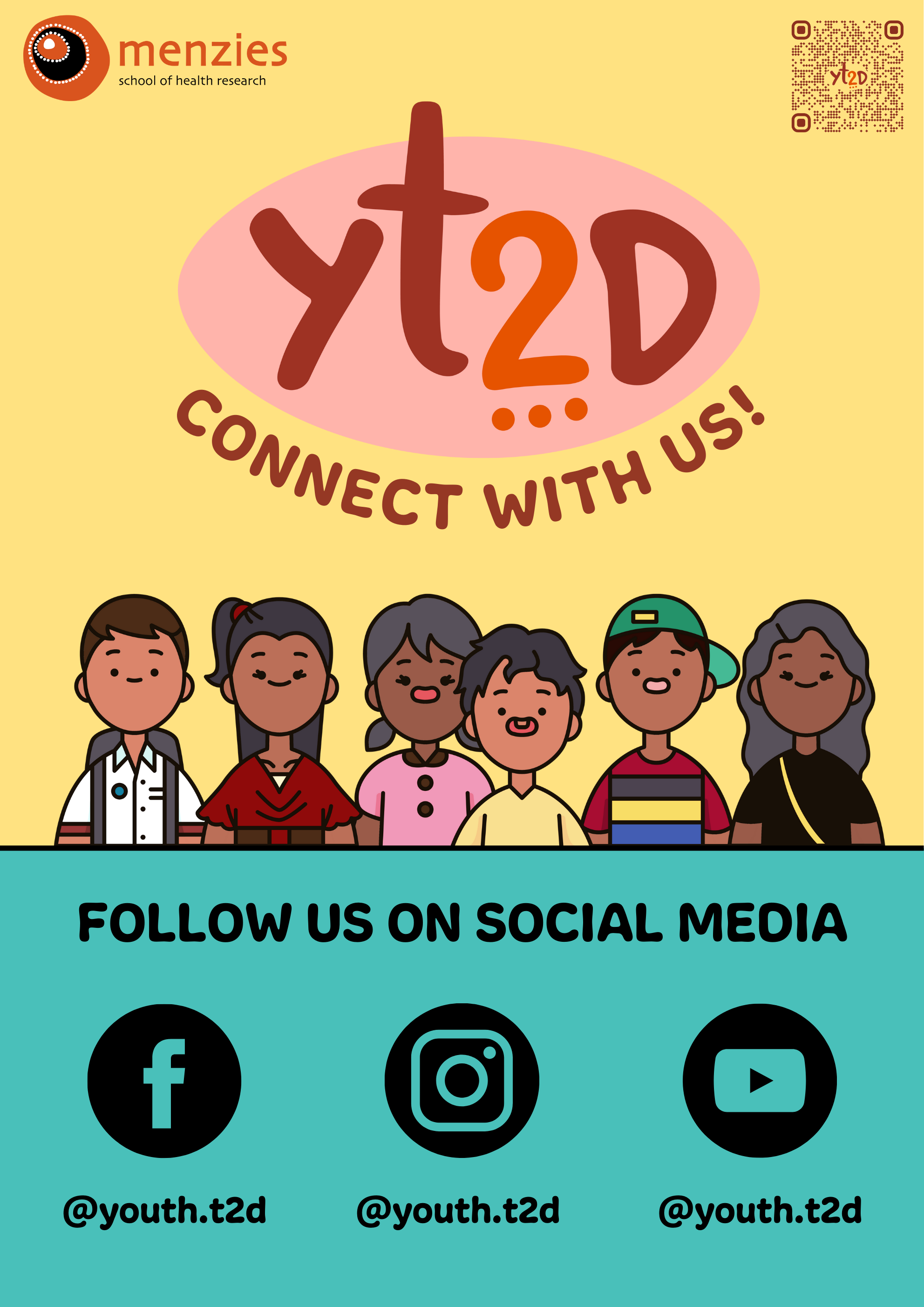Social Media
Why we are running this campaign
We have heard from young people with type 2 diabetes that they feel isolated and stressed. More young people are being diagnosed with diabetes, but many of them have told us that they don’t have someone they can talk to about diabetes and that they want more information and help.
That’s why we are working with young First Nations people, their families and communities and with health professionals to change the way young First Nations people live with type 2 diabetes. We are running this social media campaign for and with young First Nations people to provide information about living with type 2 diabetes, and so that we can learn about what information young people living with diabetes need. We are also sharing the message with families and communities that some young people have type 2 diabetes and need support.
Our team of medical experts will make sure that all the information we share is true. However, the campaign only provides general information, not medical advice. Talk to your doctor or Aboriginal Health Practitioner for advice about your personal condition and treatment or medicines.
Our team of First Nations community liaison officers will decide whether information is culturally safe before we share it.
What will happen with your information
The campaign is being run through the @youth.t2d account on Instagram, Facebook, and YouTube. We are collecting information from all of these platforms to find out about how people are interacting with the campaign and how well it’s working to share messages about living with diabetes. We will look at all of the interactions with the campaign, including likes, shares, posts and comments on posts all together. We won’t look at your profile or your individual interactions with the campaign. We won’t include your name or any of your personal information in reports, papers, presentations or posts.
If you interact with the campaign, this means that you give us permission to collect this information.
If you have a question or comment about the campaign, please send us a direct message or contact us at youth.diabetes@menzies.edu.au
Expected rules for people interacting with the campaign
We expect that everyone interacting with the campaign will be respectful of one another. Some people with type 2 diabetes feel embarrassed and don’t want other people to know. It’s okay to share your own diagnosis through the campaign, but please don’t share other peoples’ diagnoses.
The campaign is moderated regularly and all comments and posts require our approval. Any offensive, abusive or inappropriate comments and posts will not be allowed. People making offensive or abusive posts will be blocked from further interaction with the campaign.
What to do if you experience cyber-bullying or trolling through the campaign
We don’t expect people who interact with the campaign will experience cyber-bullying or trolling, and we are doing everything we can to stop this from happening. In case it does happen, we recommend taking the following steps:
- Let us know as soon as possible by sending us a direct message or contacting youth.diabetes@menzies.edu.au
- Don’t reply to them
- Block them
- Let us know if you’d like to talk to someone about it privately

Facebook: https://www.facebook.com/youth.t2d
Instagram: https://instagram.com/youth.t2d
Youtube: https://www.youtube.com/@youth.t2d
